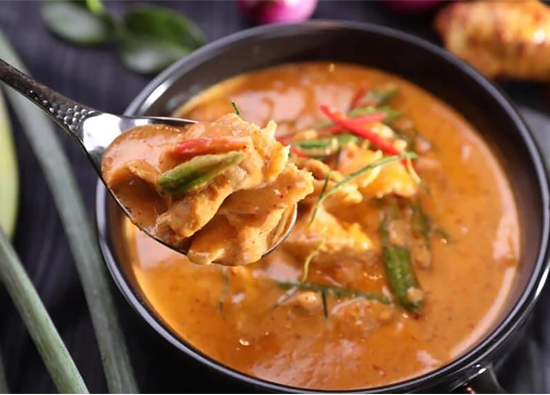07.2020 Life Guide
Be careful of gastroenteritis in summer
Dr. Peng Yanling, hepatobiliary Gastroenterology, Far Eastern Memorial Hospital /

 Novel coronavirus pneumonia is usually not treated as a major disease. Diarrhea has been seen in COVID-19 new crown pneumonia patients. Many people are aware that gastrointestinal discomfort is really not to be underestimated. Especially in the summer, it is easy to eat ice and drink cold. It is easier to cause gastrointestinal problems. Now let's get to know the common acute gastroenteritis.
Novel coronavirus pneumonia is usually not treated as a major disease. Diarrhea has been seen in COVID-19 new crown pneumonia patients. Many people are aware that gastrointestinal discomfort is really not to be underestimated. Especially in the summer, it is easy to eat ice and drink cold. It is easier to cause gastrointestinal problems. Now let's get to know the common acute gastroenteritis.Causes of acute gastroenteritis
Gastroenteritis mainly refers to the inflammation of the stomach, small intestine or large intestine Etc. The most important factor causing acute gastroenteritis is virus or bacterial infection, while parasites, allergy, dairy products and other reasons are relatively rare.
Virus infection: Rotavirus and norovirus are more common. Children in the family should pay more attention to it. The common symptoms of both are fever, nausea, vomiting, abdominal distension, diarrhea and loss of appetite. It is mainly through "fecal oral infection" and "contact infection". In particular, rotavirus is the most common cause of infantile enteritis, the most common in winter, accounting for more than 60% of infantile enteritis. Norovirus is relatively rare, the main symptom is vomiting, adults and children may be infected, some will have diarrhea, but most of them are not serious.
Bacterial infections: for example, Staphylococcus aureus, which is the most common cause of food poisoning, enterotoxigenic Escherichia coli that causes diarrhea of travelers, Salmonella and Shigella commonly seen in children. The mode of infection and symptoms are almost the same as virus infection, but most of them are diarrhea. In Salmonella and Shigella, it is common to see sour, mucus, green or bloody faeces. If high fever does not subside or dehydration occurs, antibiotics should be given immediately, otherwise it may lead to sepsis.
No matter what type of gastroenteritis, the focus is on prevention. Wash your hands frequently and avoid eating unclean or undercooked food to avoid infection.
Symptoms of gastroenteritis
The main symptoms of viral gastroenteritis are diarrhea and vomiting. Other symptoms include abdominal spasm, stomachache, nausea and some nonspecific viral symptoms, such as fever, headache, muscle soreness, etc. The symptoms of gastroenteritis usually begin to appear 1-3 days after infection and last for 1-10 days. Most patients can recover on their own, but infants, young children and those who cannot take care of themselves (for example, those who need long-term care or the elderly) may suffer from dehydration, electrolyte deficiency, convulsions and even death. In addition, immunosuppressed people have a longer course of disease and usually have more severe symptoms.
Symptoms of bacterial gastroenteritis are similar, including diarrhea, nausea, vomiting, abdominal pain, fever, headache, weakness, etc., sometimes accompanied by bloody stool or purulent stool, but not all symptoms will occur at the same time. The patient's age, personal health status, the pathogenic bacteria of infection, and how much contaminated food they ate all affect the symptoms and their severity. Especially weak resistance of people, the symptoms will be more serious, and may even lead to death. The symptoms usually last for 1 to 2 days, some lasting for 7 to 10 days.
Treatment of acute gastroenteritis
The most important treatment principle is to prevent dehydration and electrolyte loss. Mild gastroenteritis does not require a complete fasting, unless it is too serious to take medicine or eat, should be temporarily fasting, let the stomach rest, and need to be treated with intravenous drip. Rice soup with salt or starch food that is easy to digest can be taken as the main diet in the initial stage, such as porridge, rice soup, toast, steamed bread, boiled potato, etc. in addition, steamed fresh fish, apples and bananas are also suitable, especially green bananas have better antidiarrheal effect.
During gastroenteritis, diet should be light, avoid high-fat food or sweet juice or food, so as to avoid stimulating gastrointestinal peristalsis and aggravating diarrhea symptoms. If you still have vomiting, diarrhea or abdominal pain, take a small amount of multiple meals. Fruit juices rich in sorbitol, such as apple juice, pear juice and jujube juice, should be avoided as far as possible, otherwise it will increase the chance of diarrhea. At the same time, the frequency / quantity / nature of vomiting and diarrhea, the presence of bloody mucus, dehydration or severe abdominal pain must also be observed.
Patients with mild symptoms and normal immunity can usually recover on their own. The treatment mainly focuses on the symptoms, including analgesia and antipyretic, anti emetic and anti diarrhea, relieving gastrointestinal discomfort. Fasting and observation for 6-12 hours can be carried out first. If the symptoms are relieved, water can be replenished. If the symptoms persist or worsen, or even high fever, abdominal pain, severe vomiting and diarrhea, they should seek medical treatment as soon as possible.
The supplement of water and electrolytes is beneficial to patients with acute gastroenteritis. Antibiotics do not help the patients with viral infection. On the contrary, there will be side effects, such as changing the normal bacterial flora, absorbing obstacles or prolonging the time of bacteria excretion. However, for the elderly, the immune deficiency, or severe bacterial gastroenteritis patients, antibiotics should be used early.
Prevention is better than cure
For acute gastroenteritis, there is only rotavirus vaccine on the market, and it is only applicable to children. However, there is no vaccine for norovirus and most viruses and bacteria. Therefore, it is very important to pay attention to hand hygiene at all times, and wash hands frequently before meals and after going to the toilet. In addition, the preservation, preparation, treatment and hygiene of food materials are also very important. The water should be clean. Try to avoid eating raw food, especially seafood. Cooking materials should be thoroughly heated, the central temperature should be at least 70 degrees Celsius, storage temperature should also be below 7 degrees Celsius.



















